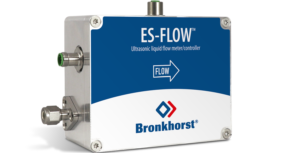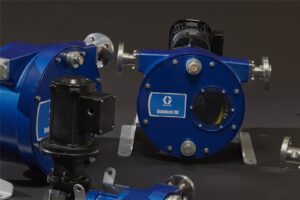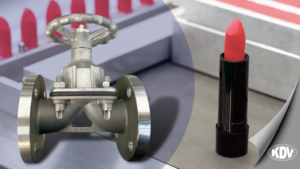![]()
Water is vital to life. Not only do we need access to clean drinking water, we need the ability to transport it without contamination.
For this reason, there are standards that were created for pumping systems to safeguard potable water as it comes into contact with different materials during transport through a piping system.

The NSF/ANSI 61 Standard for Drinking Water System Components (published in 1988) establishes the requirements for the piping and mechanical devices (pumps, valves, chemical feeders, etc.) that potable water moves through as it works its way from a municipal water treatment plant to a network of water tanks and piping systems that deliver drinking water to commercial and residential buildings. Manufacturers of water treatment and distribution products in North America must comply with NSF/ANSI 61 to minimize potentially adverse effects that can be caused from contaminants leaching into drinking water.
When a design engineer is designing a pumping system to transport potable water, they are typically specifying pumps, valves, pipes and other system components that are certified to the NSF/ANSI 61 Standard – this includes expansion joints.
Expansion joints are designed into potable water pumping systems for the following reasons:
Expansion joints help to reduce vibration. All rotating equipment vibrates, but excessive vibration will have negative effects on your pumping equipment. Designing expansion joints into your potable water pumping system will allow system operators to keep the range of vibration within acceptable limits. It is critical to properly select the expansion joints with the most optimal material composition and design for your pumping system.
Expansion joints accommodate for piping misalignment. Whether misalignment happens during piping installation or if the piping alignment shifts over time, expansion joints help to accommodate the “imperfections” found in a piping system.
Expansion joints counteract thermal growth. Thermal growth occurs when pipes expand or contract, and expansion joints compensate for these changes to prevent putting stress on the pump. When thermal growth is allowed to put stress on a pump, the pump is at risk of mechanical seal failure or bearing problems. Acknowledging thermal growth as part of pump system operation and addressing it with expansion joints means proactively ensuring a healthy life span of your pumps.
Before purchasing expansion joints for your potable water pumping system, try out 3-dimensional CAD models of NSF/ANSI 61 Certified expansion joints from Proco Products, Inc.
Click here to try out 3-dimensional CAD models Click here for related articles and news
Sign up for Piping Systems E-Updates
Proco Products, Inc. is the global leader in the design and supply of expansion joints for piping/ducting systems. For over 30 years, Proco has prided themselves on offering the most complete line of products to suit a variety of applications. Some of these products include rubber and molded PTFE expansion joints, braided flexible hose assemblies and …
Source of Article



